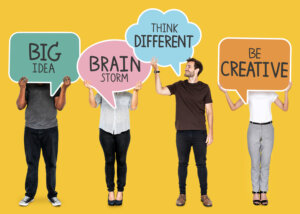This post is part 2 of Crystal Davis’ guest blog based on her dissertation on Servant Leadership in a spiritual organization. Ms. Davis is passionately engaged in Servant Leadership and selfless service to the nonprofit and public sectors having served both large and small organizations throughout her career and her consulting business.
****************
I decided to look at self-transcendence and servant leadership behavior through the lens of Religious Science. Centers for Spiritual Living teaches a philosophy that came out of the New Thought Movement, and was started in the mid-1800s by Transcendentalists like Ralph Waldo Emerson and continued into the twentieth century with the teachings of Emmett Fox, Napoleon Hill, Emma Curtis Hopkins, and Ernest Holmes.
Centers for Spiritual Living (CSL) was founded in the early 20th century by Dr. Ernest Holmes. Holmes (1966) believed there was a thread of truth running through every great religion and philosophy and it was his desire to pluck out that thread, leaving behind all superstition, dogma, and religious opinion. Holmes (1966) taught Religious Science from his book, The Science of Mind: A Philosophy a Faith, A Way of Life. Religious Science teaches three core values; A belief in every religion and honor all paths to God; A belief that every life is sacred and valuable; and A belief that every person is on a spiritual journey which will ultimately lead to their greatest good. Centers for Spiritual Living around the world use the Science of Mind textbook written by Dr. Holmes as one of the resources for the aforementioned beliefs.
Science of Mind has influenced luminaries in the field of self-development such as Wayne Dyer, Jack Canfield, Oprah Winfrey, Michael Beckwith, and Marianne Williamson. The integrated movement has over 400 spiritual centers in 29 countries, and publishes two inspirational monthly magazines with a combined readership of 100,000.
Holmes (1966) taught that the universe is created by an Infinite Mind; therefore one should remain “open at the top”; always ready to incorporate new wisdom as it is revealed through the arts, science and religion. The western Holy Bible, along with the eastern teachings of the Tao and other sacred texts are illumined as resources for spiritual truth (Star, 2008).
Centers for Spiritual Living celebrate and welcomes diversity. It is believed that every person holds equal value in the eyes of God regardless of religion, race, gender, sexual orientation or any other worldly identification that attempts to separate people. Centers for Spiritual Living hold the vision that one day humankind will see itself as one people on one planet, living in one universe governed by one God.
——————
For more resources, see our Library topic Spirituality in the Workplace.
——————
Crystal J Davis holds a Bachelor’s degree in Journalism and Mass Communications from Kansas State University, a Masters in Human Relations from the University of Oklahoma, and will graduate with a Doctorate in Management and Organizational Leadership from University of Phoenix in December 2013.
 Sections of this topic
Sections of this topic
















